I have been involved in Montessori education for over 35 years. As the founder of Oneness-Family School and as a board member of the International Montessori Council, I have had a chance to see the benefits of Montessori at Oneness-Family School and at many Montessori schools around the country and world.
From my point of view, here are the top ten reasons why Montessori students excel academically and are so well prepared for a life of learning.
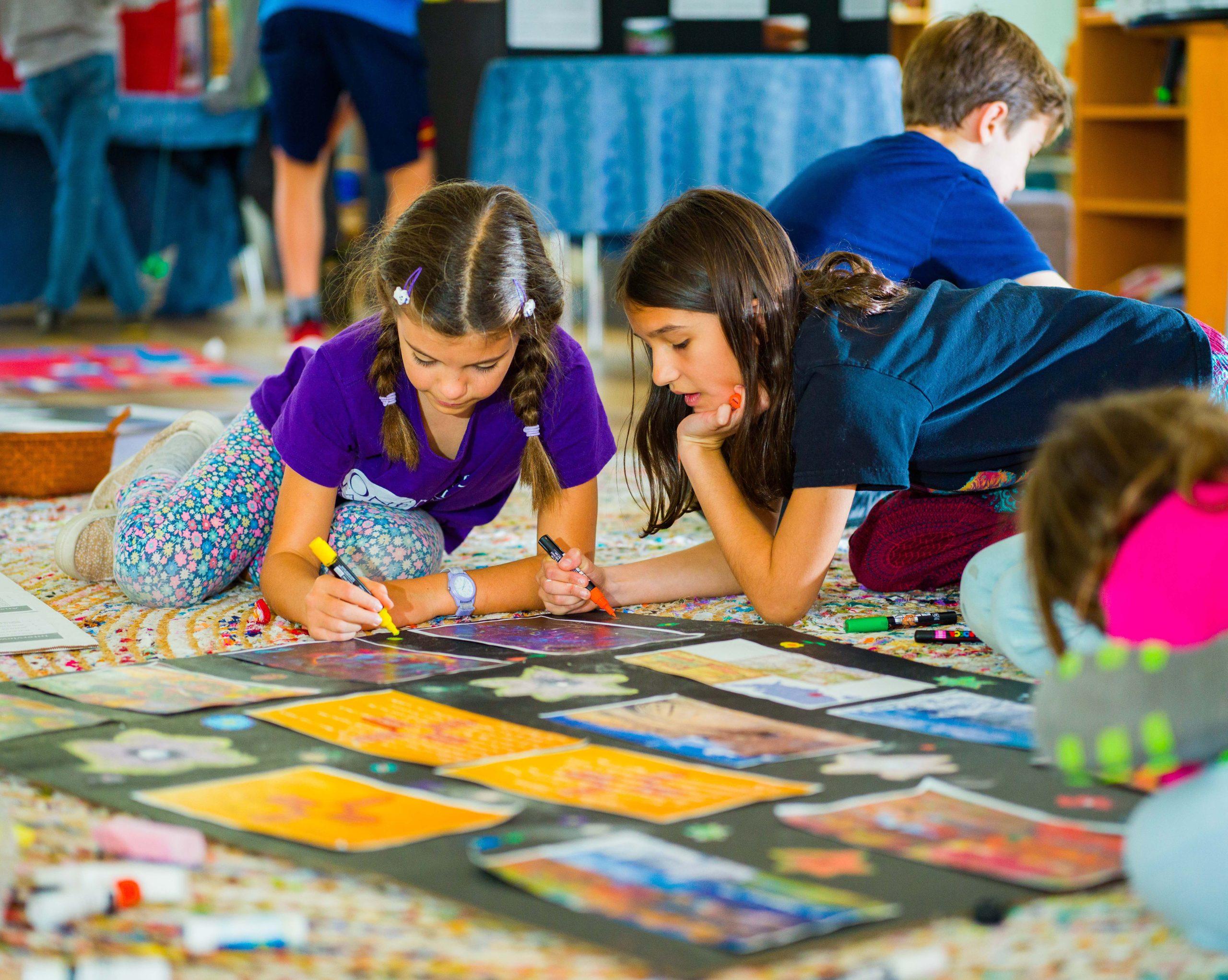 #1 Montessori uses hands-on materials and real specimens to make the learning process concrete and exciting
#1 Montessori uses hands-on materials and real specimens to make the learning process concrete and exciting
Learning is not in the abstract – it is real and relevant to the child’s level of understanding and everyday experience. This keeps students engaged deeply in the learning process, which helps them retain a love of learning instead of becoming bored.
#2 Montessori is a dynamic learning approach
In a Montessori environment, many things are happening at the same time. Teachers may be giving separate lessons to different small groups while other students are doing independent assignments. Teachers monitor student lessons and work every step of the way.
The benefit is that students are getting lessons right for them and are also learning to work on their own to accomplish tasks.
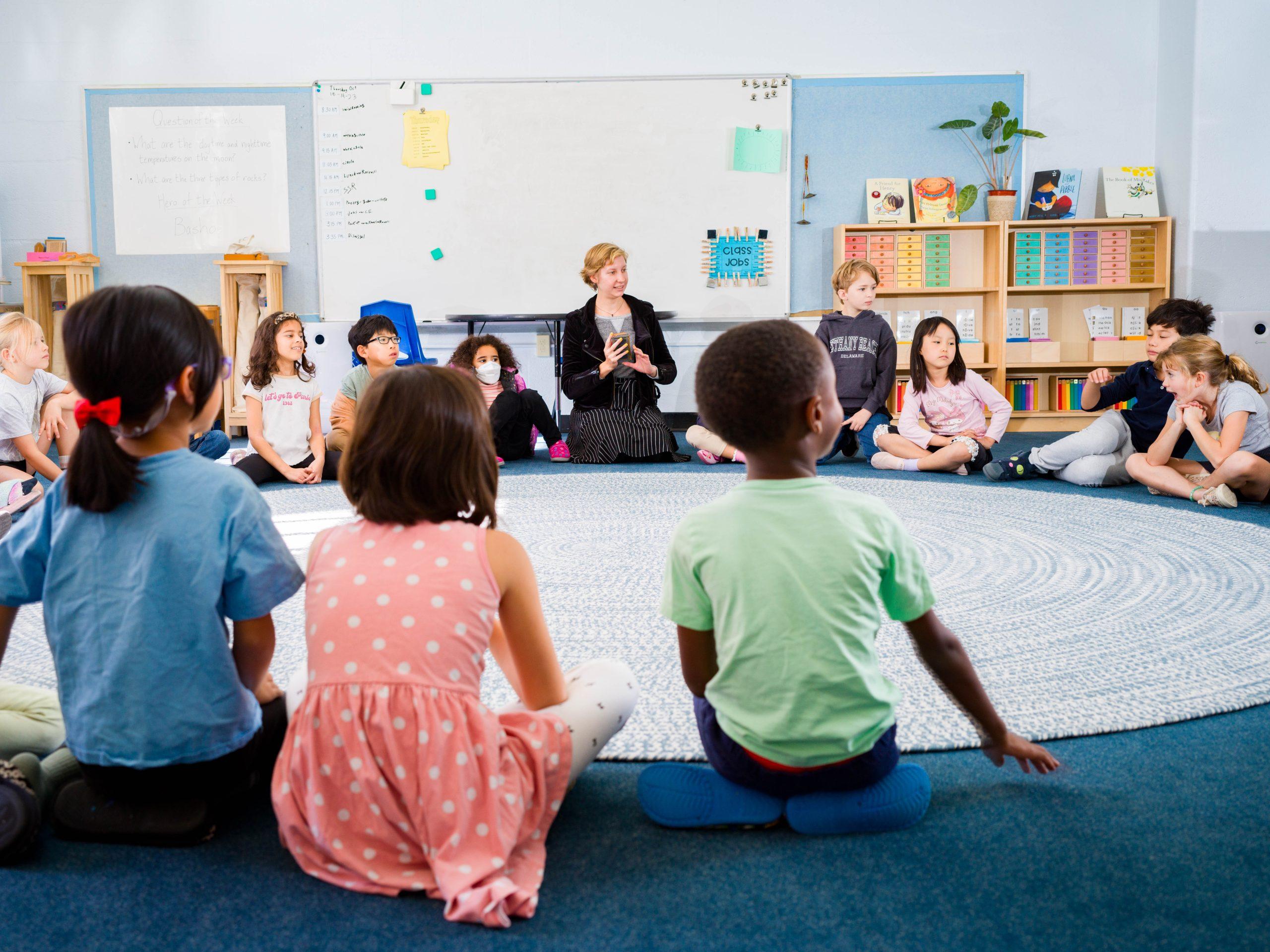 #3 The focus is always on the whole – the big picture
#3 The focus is always on the whole – the big picture
Facts are easily forgotten unless they are taught in a broader context. Montessori kids enjoy learning about “big ideas” – the essential concepts of science, geography, and history. They learn these concepts through inspiring stories and creative follow-up activities.
Montessori students also continuously learn how to make connections between ideas in different subjects. The benefit is that Montessori students remember what they have learned at a deeper level.
#4 Students progress at their own rate
In a Montessori school, there is no limit to how fast a student can progress. When a student is ready for a new challenge, the teachers are ready to help them to meet it. As a result, Montessori schools like Oneness-Family School have students reading far above grade level, doing advanced math, learning research methods and utilizing technology to learn and to make presentations.
OFS graduates entering high school, for example, are advancing to level 2 or 3 foreign languages, often taking Geometry or higher, and are frequently in advanced placement literature/writing classes.
Of course, students who need support in a subject (and even advanced students often do), can get this too in a Montessori classroom where students receive individual attention.
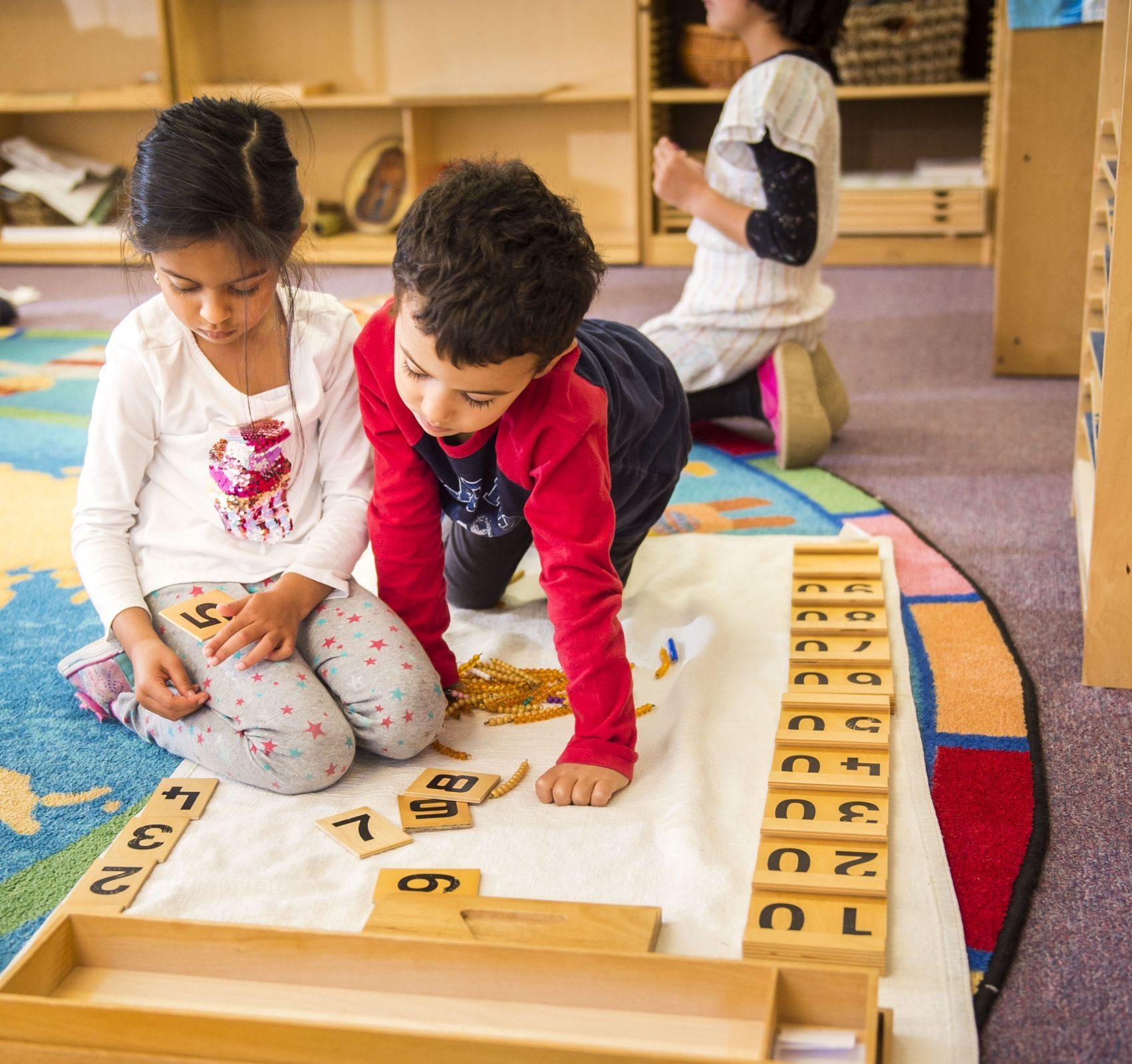 #5 Multi-age classrooms
#5 Multi-age classrooms
Maria Montessori discovered the magic of multi-age classrooms over 85 years ago. Now, the concept has been adopted, in modified form, in many non-Montessori schools everywhere.
A multi-age classroom taps into our natural desire to learn from others who know more than us and our joy in teaching others what we know. In addition, the multi-age classroom allows students to go through a 3-year leadership cycle, allowing students and families to stay with a team of teachers to build a deep relationship of trust and communication.
#6 Intrinsic motivation
Montessori schools do not attempt to motivate by grades, threats, punishments, or rewards. Rather, with emphasis on choice and initiative, students take charge of their learning process in partnership with their teachers. Students do assignments not because of the grade they will get but because it has meaning and relevance to them.
The reward of learning is the learning itself – not just a grade. In a Montessori environment, assessment can take many forms, including individual or group student projects and presentations – which build very strong communication skills.
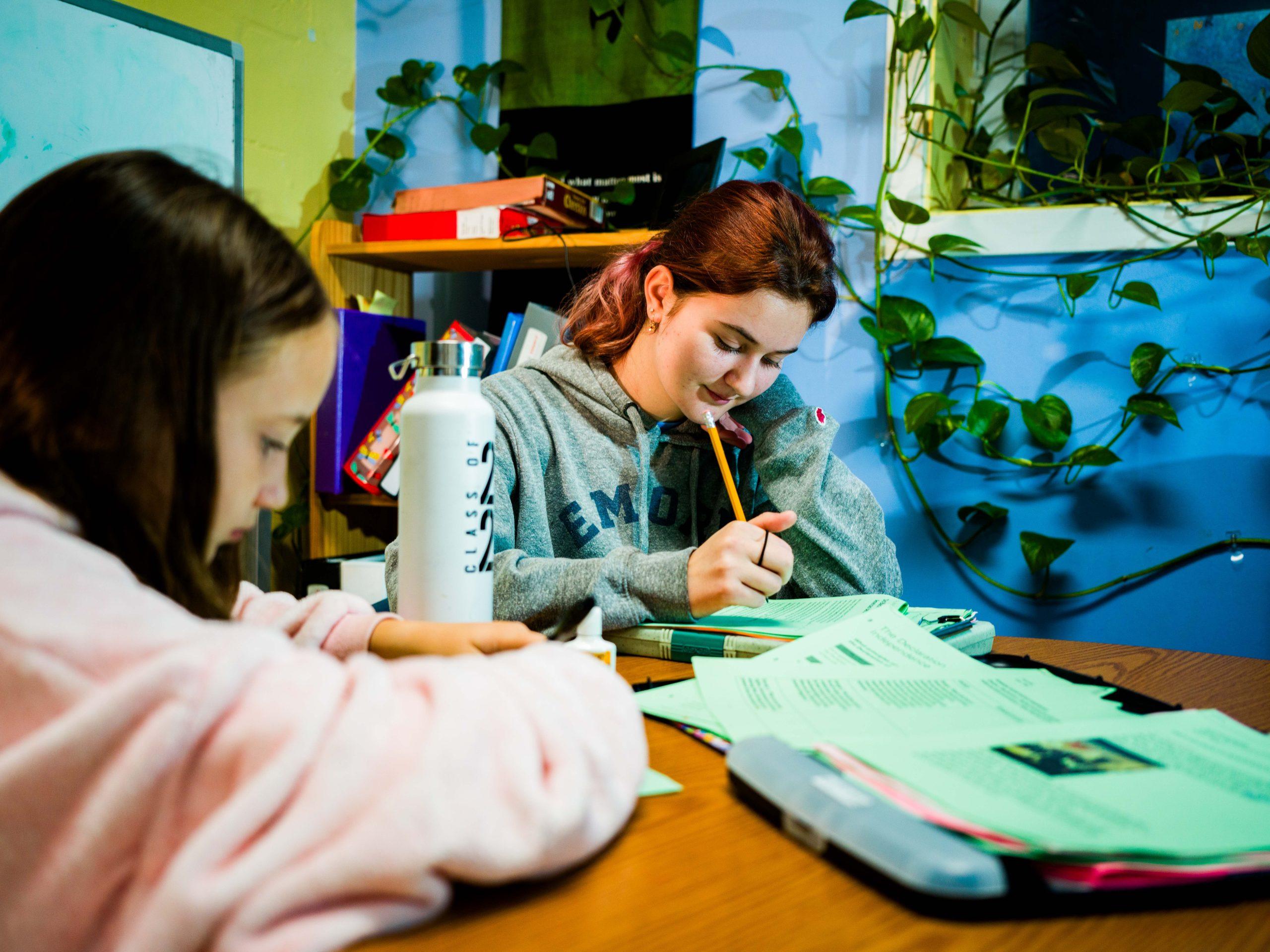 #7 Non-competitive learning
#7 Non-competitive learning
Montessori students gain very strong self-confidence because they understand their talents and the areas in which they need to improve. Moreover, they learn to appreciate the gifts of others.
How does this prepare them for the “real world”? The more solid students are in who they are – and the greater their ability to empathize with others – the better prepared they will be for future success.
#8 Self-Organization
Montessori students begin to plan their days in preschool. At OFS, in grades 1-3, they learn to do a daily work plan in consultation with their teachers, which includes the lessons they must attend and the independent assignments they will do.
When students graduate to grades 4-5, they begin to plan a week at a time, and in grades 6-8, they learn to look at the entire scope of a cycle of learning – about eight weeks.
Along the way, they learn how to break down longer-term projects and assignments into actionable steps. The benefit is that Montessori students are very self-directed and capable academic students and far ahead of their peers when it comes to knowing how to do a research paper or study for an exam.
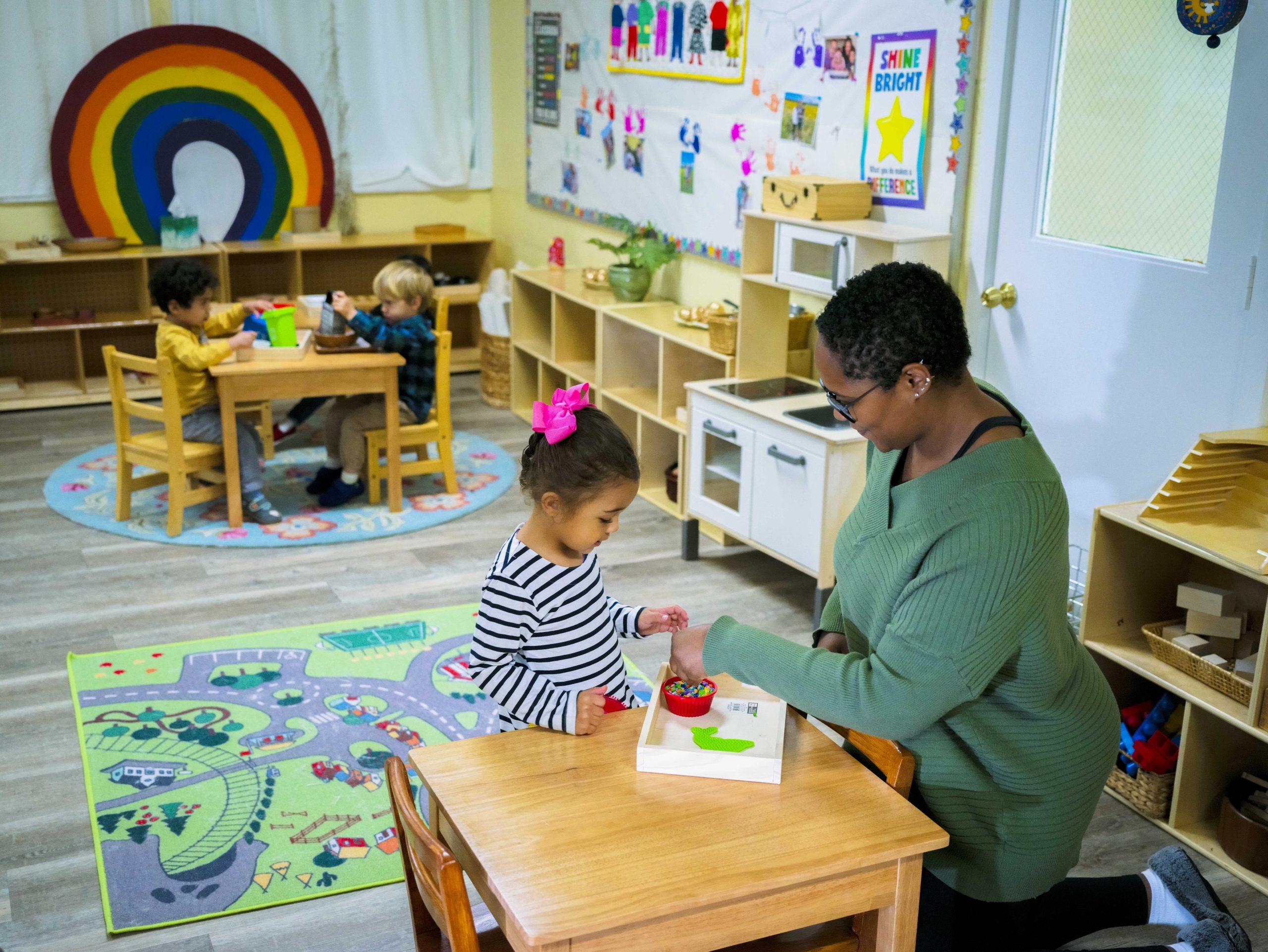 #9 Montessori classrooms encourage students to ask questions and challenge assumptions
#9 Montessori classrooms encourage students to ask questions and challenge assumptions
Students learn early on that their ideas are important –and that all great ideas come from deep thinking. Maria Montessori understood that the heart of learning is in the questions students ask.
Moreover, where traditional learning focuses on “one right answer,” Montessori encourages students to discover more than one answer where possible. The benefit is that students learn to think differently about topics and to appreciate many viewpoints.
#10 Part of a community
Both the social environment and the curriculum in a Montessori school are powerful reinforcements of the idea that we are part of a greater whole. From two years old onward, students learn how to care for their classroom and each other. As Montessori students get older, they learn to acknowledge each other and to solve conflicts that will arise.
In their curriculum studies, Montessori’s “great lessons” focus on our human family, the evolution of life, and the shared home we call Earth. Students learn to see their place in the community and the world and to understand that they have an important responsibility to support the well-being of our planet and its great web of life.
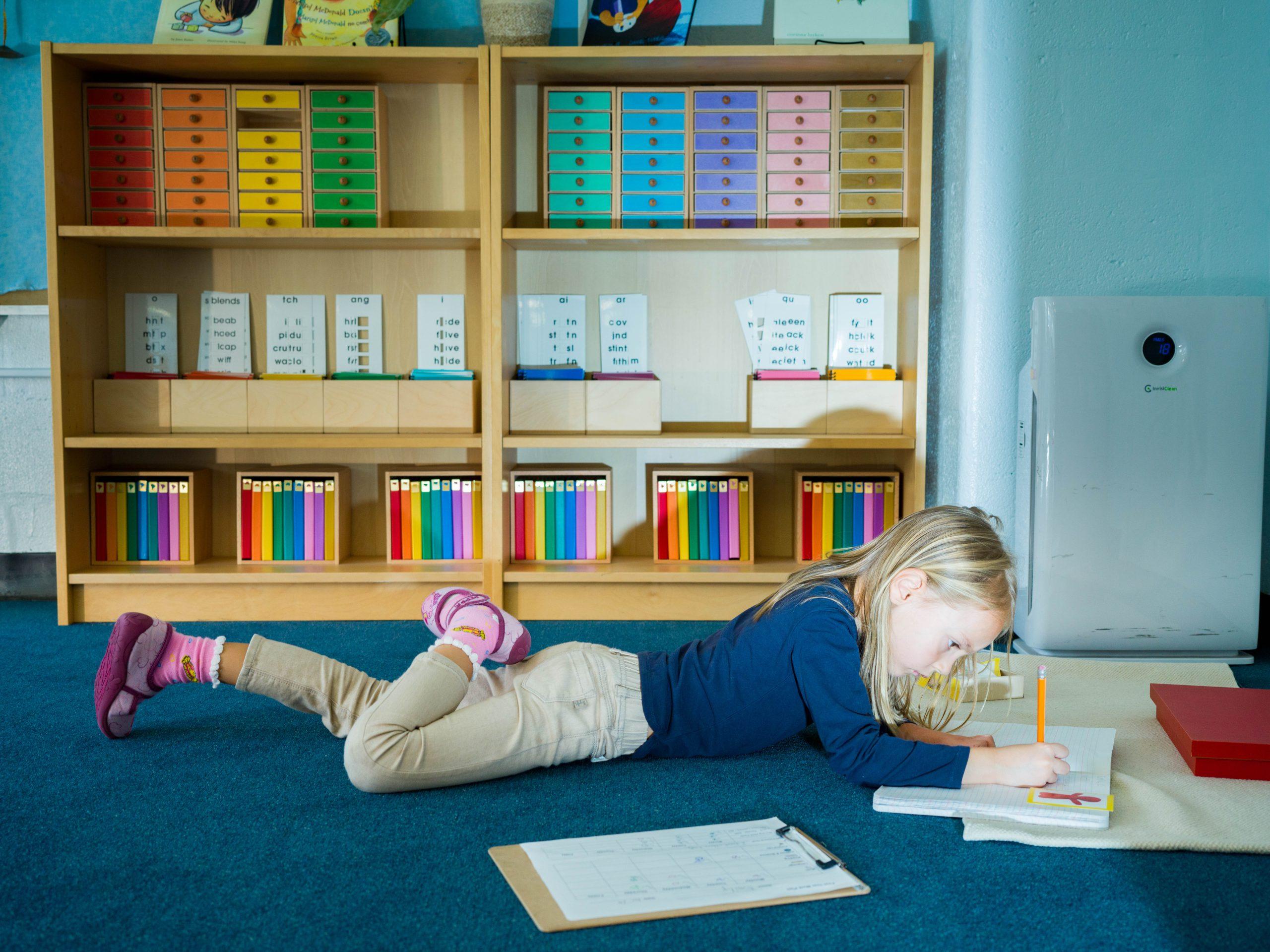 Learn More about Montessori at Oneness-Family School
Learn More about Montessori at Oneness-Family School
Join Oneness-Family School for Montessori Night!
Spend an evening at Oneness-Family School and discover why Montessori students love to learn! Experience the Montessori philosophy through demonstrations by students and faculty. Explore classrooms and learn about Oneness-Family’s unique Montessori curriculum for ages 2 through 12th grade.











